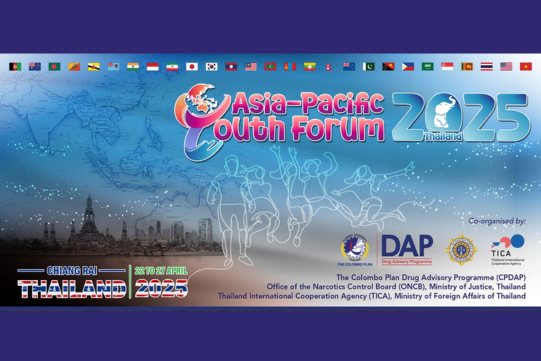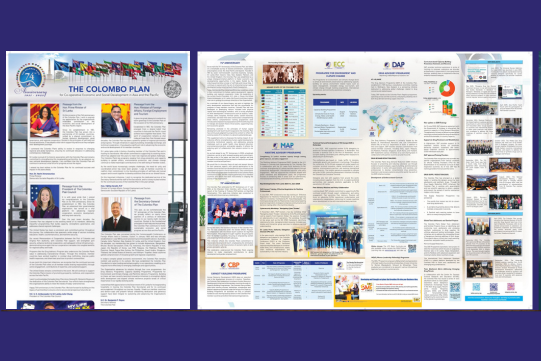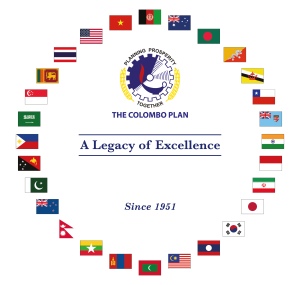


The Colombo Plan is an inter-governmental organisation consisting of 28 member countries operating on the partnership concept of self-help and mutual help to enhance human capital development and south-south cooperation.
The Colombo Plan Bureau which later evolved into the Colombo Plan, was instituted in 1951 at the Commonwealth Conference on Foreign Affairs held in Colombo, Sri Lanka.

The Foreign Ministers of the British Commonwealth meet to discuss international affairs in Colombo where Australia and Sri Lanka (then Ceylon) proposes joint financial and technical assistance to the region’s developing nations.
1950
The Colombo Plan is launched and begins by laying the groundwork for education, healthcare, agriculture, science and infrastructure development, gradually evolving to guide its member countries towards robust industrial sectors.
1951-1971
The Colombo Plan reaffirms its commitment to technical cooperation and human capital development with the establishment of CPDAP pioneering notable initiatives in drug demand and supply reduction.
1972-1988
At crossroads, despite the reduced need for external technical assistance, the Colombo Plan forges ahead, buoyed by members' belief in its potential as a catalyst for regional development cooperation.
1989-1994
Embracing new directions, the Colombo Plan pivots towards South-to-South cooperation, catering to both the region's development and the Colombo Plan’s capacities; that of technical co-operation.
1995-2004
The Colombo Plan gains renewed impetus in its global mission for DDR. As the oldest regional inter-governmental programme in the Asia-Pacific region, it ventures into certification, global prevention and treatment protocols, and the development of training curricula.
2005-2019
Stepping into a decade of milestones, online self-led curricula play a pivotal role in global DDR and capacity building, facilitating outreach to new countries and providing accessible services to both memeber and non-member countries.
2020 - 2024
At The Colombo Plan, we are committed to recruiting exceptional individuals from diverse backgrounds from across the globe. Preference is given to candidates from member countries of The Colombo Plan or countries actively involved in our initiatives. We strive to build a talented and inclusive team dedicated to advancing regional cooperation and development in Asia-Pacific.

Don’t miss our future updates! Get Subscribed Today!
© 2025. The Colombo Plan Secretariat. All Rights Reserved.